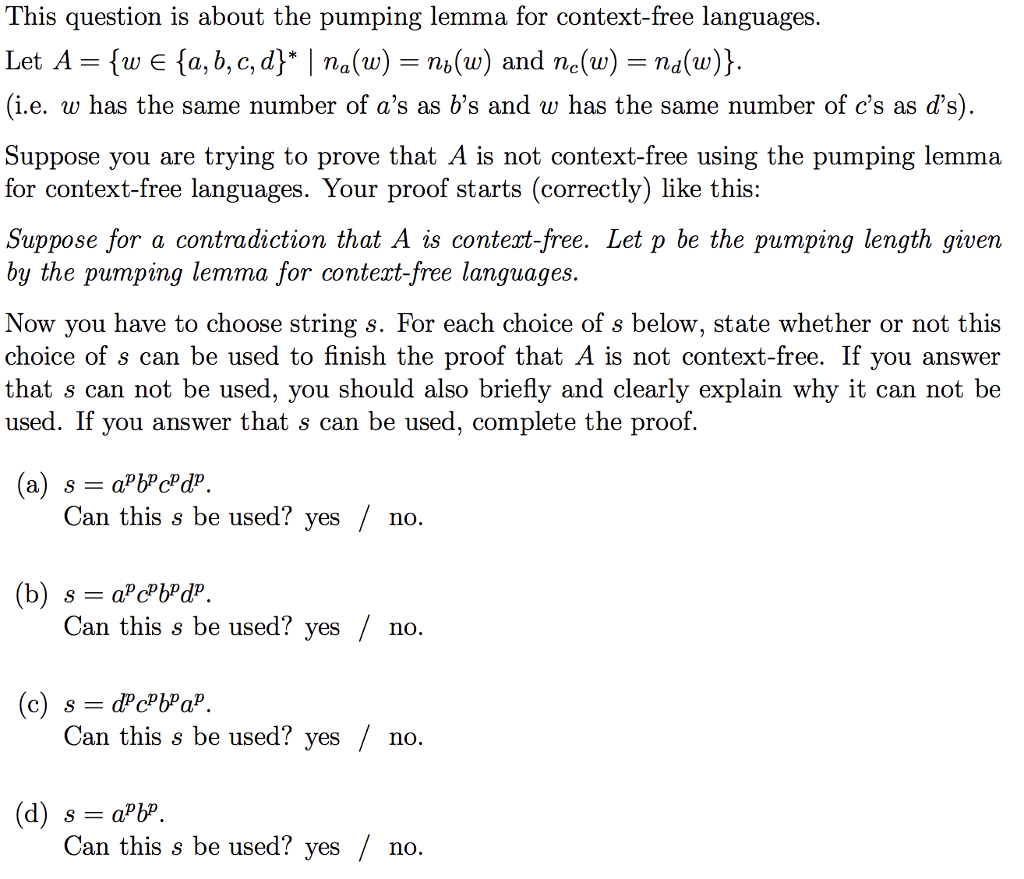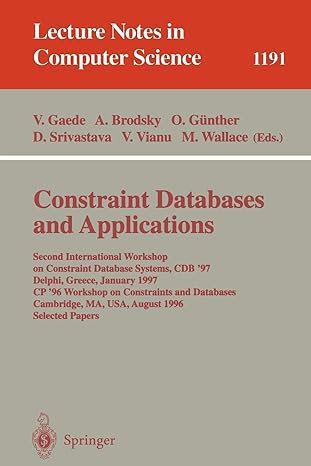
This question is about the pumping lemma for context-free languages. Let A = {w elementof {a, b, c, d}* n_a (w) = n_b(w) and n_c (w) = n_d (w)}. (i.e. w has the same number of a's as b's and w has the same number of c's as d's). Suppose you are trying to prove that A is not context-free using the pumping lemma for context-free languages. Your proof starts (correctly) like this: Suppose for a contradiction that A is context-free. Let p be the pumping length given by the pumping lemma for context-free languages. Now you have to choose string s. For each choice of s below, state whether or not this choice of s can be used to finish the proof that A is not context-free. If you answer that s can not be used, you should also briefly and clearly explain why it can not be used. If you answer that s can be used, complete the proof. (a) s = a^p b^p c^p d^p Can this s be used? yeso (b) s = a^p c^p b^p d^p Can this s be used? yeso (c) s = d^p c^p b^p a^p Can this s be used? yeso (d) s = a^p b^p Can this s be used? yeso. This question is about the pumping lemma for context-free languages. Let A = {w elementof {a, b, c, d}* n_a (w) = n_b(w) and n_c (w) = n_d (w)}. (i.e. w has the same number of a's as b's and w has the same number of c's as d's). Suppose you are trying to prove that A is not context-free using the pumping lemma for context-free languages. Your proof starts (correctly) like this: Suppose for a contradiction that A is context-free. Let p be the pumping length given by the pumping lemma for context-free languages. Now you have to choose string s. For each choice of s below, state whether or not this choice of s can be used to finish the proof that A is not context-free. If you answer that s can not be used, you should also briefly and clearly explain why it can not be used. If you answer that s can be used, complete the proof. (a) s = a^p b^p c^p d^p Can this s be used? yeso (b) s = a^p c^p b^p d^p Can this s be used? yeso (c) s = d^p c^p b^p a^p Can this s be used? yeso (d) s = a^p b^p Can this s be used? yeso







